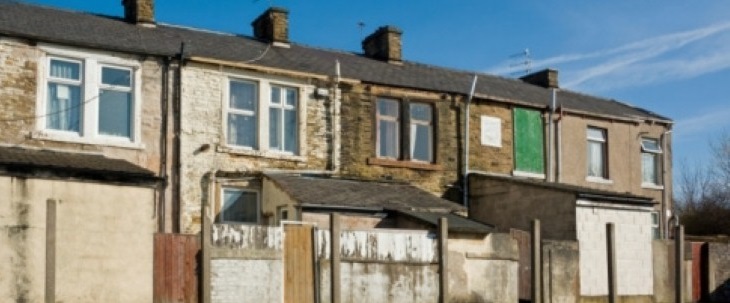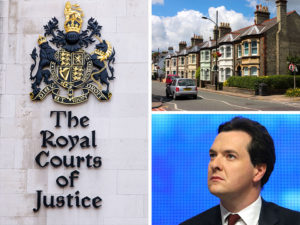Rogue landlords who rent out homes which fail to meet basic health and safety will be receive more than £12bn in housing benefit payments – enough money to build half a million new homes.
Currently around £2.5bn is paid annually to landlords who rent out properties which the government classifies as “non-decent.” Such properties are categorized as having inadequate heating, outdated sanitation, be in a state of serious disrepair or be unsafe. This may include having a dangerous boiler, vermin infestation or faulty wiring.
The latest figures follow a Renters Alliance report earlier this year that nearly a third privately rented properties fail to meet government-defined minimum housing standards. More than 750,000 homes in London alone having a category one housing hazard, the most dangerous type.
Landlord housing benefit payments
Despite the poor average quality of private rented accommodation, landlords are continuing to profit from huge sums of public money. Since 2010, spending on housing benefit has increased by £4bn and now stands at £24bn per year with 36 per cent (£8.8bn) going to the UK’s 1.75 million private landlords.
The English Housing Survey’s latest report reveals that rogue landlords receive more than a quarter of all housing benefit paid to private renters. Some of the spending rise is a direct result of private rents rising by an average of 22 per cent since 2010 which has led to increasing numbers of private tenants relying on the state for financial support.
Housing benefit going to private renters has more than doubled in the last 10 years from £3.7bn to £8.8bn despite the government making 13 cuts to housing benefit since 2010. The treasury forecasts that private sector housing benefit spending will rise to £9.4bn per year by 2021-22.
Political response
Commenting on the latest figures, the Labour party accused the Government of having “made it easier for rogue landlords to fleece the system”.
Labour also claims that the government has consistently refused to introduce licensing of all private landlords and have clamped down on local councils who want to introduce their own licensing schemes.
John Healey, the Shadow Housing Secretary said: “The number of families renting from a private landlord has soared by more than a million since 2010, but decisions made by Conservative ministers have made it easier for a minority of bad landlords to fleece the system.
“Most landlords provide decent homes that tenants are happy with, but these rogue landlords are ripping off renters and taxpayers alike by making billions from housing benefit on substandard homes.
“Theresa May declared the ‘housing market is broken’, but Tory ministers won’t act to make the market fairer or work better for private renters. After seven years of failure, the Conservatives have no plan to fix the housing crisis.”
Improvement
Last year, ministers rejected an amendment to make it a legal obligation for landlords to ensure their properties are “fit for human habitation”. This followed attempts a year earlier in 2015 when Parliament voted against a “Fitness for Human Habitation Bill,” proposed by the Labour MP Karen Buck. The Bill would have introduced a legal requirement that residential rented accommodation be provided and maintained in a state of fitness for human habitation.
Some progress has been made in several aspects of housing standards enforcement. The Government has now introduced a register of rogue landlords, which will become active from October. However, it will be accessible only to Whitehall departments and local councils. Tenants or prospective renters wanting to check if their landlord is on the register will be unable to do so.
Lack of resources
Renters will also soon be given new rights to reclaim rent they have spent on unsuitable properties and councils have the power to fine failing landlords up to £30,000. However, local government sources say council budget cuts have made it difficult for councils to enforce existing regulations.
Across the whole of the UK, an average of only one rogue landlord is prosecuted per council each year despite more than a third, or 1.4 million, private rented properties failing to meet minimum housing standards.
The Renters Alliance helps renters with bad landlords and letting agents. If you have a story you would like to share, please contact the National Renters Alliance through our website or email us at contact@nralliance.co.uk









